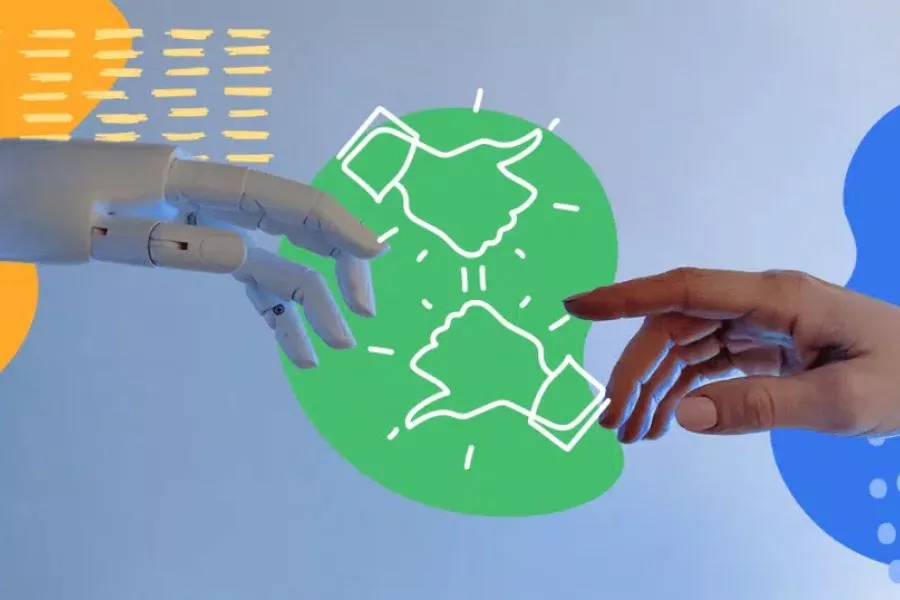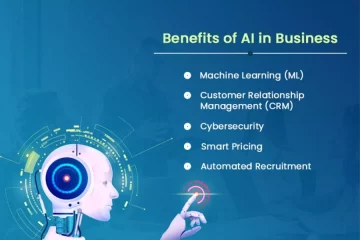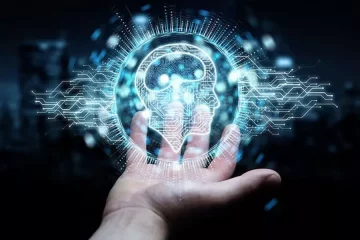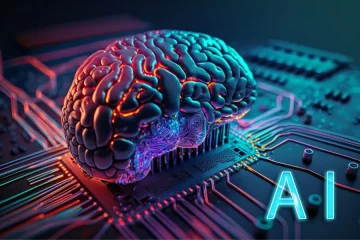The Pros and Cons of AI: Exploring the Opportunities and Challenges of Artificial Intelligence

Pros and Cons of AI
Artificial Intelligence (AI) has been one of the most talked-about topics in recent years, and for good reason. From chatbots and virtual assistants to self-driving cars and facial recognition technology, AI has emerged as a game-changer in the digital world. It offers immense opportunities to revolutionize the way we live, work and interact with technology. However, as with any technology, AI also has its fair share of challenges and limitations. The potential impact of AI on the job market, privacy concerns, and ethical considerations are just a few of the issues that need to be addressed.
The Pros of AI
There are numerous benefits to AI, including increased efficiency, accuracy, and productivity. One of the most significant advantages of AI is the ability to automate repetitive tasks, allowing humans to focus on more complex and creative work. For example, in the healthcare industry, AI can analyze medical images and help diagnose diseases with greater accuracy and speed than human doctors. This not only saves time but can also lead to earlier detection and treatment of illnesses, ultimately saving lives.
Another area where AI can have a positive impact is in education. AI-powered tools can personalize learning experiences for students, providing them with customized content and feedback based on their individual needs. This can lead to better student outcomes and a more engaging learning experience. Additionally, AI can help educators identify areas where students may be struggling and provide targeted support to help them succeed.
Finally, AI has the potential to make our lives easier and more convenient. Smart home devices, such as Amazon Alexa and Google Home, use AI to understand and respond to voice commands, making it easier to control household appliances and access information hands-free. Self-driving cars, another example of AI, have the potential to reduce traffic accidents and fatalities, as well as improve traffic flow and reduce congestion.
The Cons of AI
Despite the many benefits of AI, there are also significant drawbacks and potential risks associated with this technology. One of the main concerns is the impact on jobs and the workforce. As AI continues to automate tasks previously performed by humans, there is a risk that many jobs will become obsolete, leading to unemployment and economic disruption. This could disproportionately affect certain groups, such as low-skilled workers, and lead to further income inequality.
Another issue with AI is the potential for bias and discrimination. AI algorithms are only as unbiased as the data they are trained on, and if that data is biased, the algorithm will be too. This can lead to discriminatory outcomes, such as facial recognition software that is less accurate for people with darker skin tones. Additionally, AI has the potential to invade privacy, especially when it comes to facial recognition and surveillance technology.
Finally, there are ethical considerations surrounding AI, particularly when it comes to the use of autonomous weapons and the potential for AI to be used in ways that harm humanity. There is a risk that AI could be used for malicious purposes, including cyberattacks and other forms of digital warfare. Additionally, there is a risk that AI could be used to perpetuate existing power structures and exacerbate social inequality.
AI in the Workplace
AI is already having a significant impact on the workforce, and this trend is likely to continue in the coming years. While some jobs may become obsolete, others will be created, and there is potential for AI to enhance and augment human work. For example, AI-powered tools can help humans with decision-making, data analysis, and other complex tasks. Additionally, AI can help improve workplace safety by identifying and mitigating potential hazards.
However, there are also concerns about the impact of AI on job security and worker rights. As AI becomes more prevalent in the workplace, there is a risk that workers may be replaced by machines or that their jobs may be significantly altered. This could lead to job insecurity, wage stagnation, and other negative outcomes for workers. It is important to consider these issues and develop policies and programs to address them proactively.
AI in Healthcare
AI has the potential to transform the healthcare industry in numerous ways. One of the most significant applications of AI in healthcare is in medical imaging. AI algorithms can analyze medical images with greater speed and accuracy than human doctors, allowing for earlier detection and treatment of diseases. Additionally, AI can help personalize treatment plans for patients, based on their unique genetic and medical history.
AI can also help improve patient outcomes by reducing medical errors and improving the accuracy of diagnoses. This can lead to better health outcomes and reduced healthcare costs. However, there are also concerns about the potential for AI to exacerbate existing healthcare disparities, as well as the privacy and security of patient data. It is important to address these issues proactively and ensure that AI is used in ways that benefit all patients, regardless of their socioeconomic status.
AI in Education
AI has the potential to revolutionize education by providing personalized and adaptive learning experiences for students. AI-powered tools can help identify areas where students are struggling and provide targeted support to help them succeed. Additionally, AI can help educators develop customized learning plans for each student, based on their individual needs and learning styles.
However, there are also concerns about the impact of AI on the role of teachers and the quality of education. While AI can provide valuable support to educators, it is important to ensure that it does not replace human teachers or reduce the quality of education. Additionally, there are concerns about the potential for bias in AI-powered educational tools, which could exacerbate existing educational disparities.
AI in Customer Service
AI-powered chatbots and virtual assistants are becoming increasingly prevalent in customer service, offering businesses a cost-effective and efficient way to provide customer support. Chatbots can respond to customer inquiries and provide assistance 24/7, reducing the workload for human customer service representatives. Additionally, AI can help businesses analyze customer data and personalize marketing and sales strategies based on individual customer preferences.
However, there are also concerns about the quality of customer service provided by AI-powered tools. While chatbots can be efficient, they may not always provide the level of support and understanding that human representatives can. Additionally, there is a risk that AI-powered customer service tools could exacerbate existing disparities in access to customer support, particularly for people with disabilities or those who do not speak the dominant language.
Ethical Considerations of AI
As AI continues to evolve and become more prevalent, there are important ethical considerations that need to be addressed. One of the most significant concerns is the potential for AI to be used for malicious purposes, such as cyberattacks and digital warfare. Additionally, there is a risk that AI could perpetuate existing power structures and exacerbate social inequality.
Another ethical consideration is the potential for bias and discrimination in AI algorithms. AI algorithms are only as unbiased as the data they are trained on, and if that data is biased, the algorithm will be too. This can lead to discriminatory outcomes, such as facial recognition software that is less accurate for people with darker skin tones. Additionally, there are concerns about the privacy and security of personal data collected by AI systems.
Jobs and the Future of Work with AI
As AI continues to automate tasks previously performed by humans, there are concerns about the impact on the job market and the future of work. While some jobs may become obsolete, others will be created, and there is potential for AI to enhance and augment human work. However, it is important to address concerns about job security, wage stagnation, and other negative outcomes for workers.
Additionally, there are concerns about the potential for AI to exacerbate existing inequalities in the job market. Certain groups, such as low-skilled workers and those in developing countries, may be disproportionately affected by the automation of jobs. It is important to develop policies and programs to address these issues proactively and ensure that AI is used in ways that benefit all workers.
Conclusion
AI is a rapidly evolving technology with immense potential to revolutionize the way we live, work, and interact with technology. However, as with any technology, there are also challenges and limitations that need to be addressed. From job displacement to privacy concerns and ethical considerations, it is important to consider the potential risks and benefits of AI and develop policies and programs to ensure that it is used in ways that benefit all members of society. As AI continues to evolve and become more prevalent, it is essential that we remain vigilant and proactive in addressing these issues, to ensure a future where AI is used to improve our lives and not harm them.









